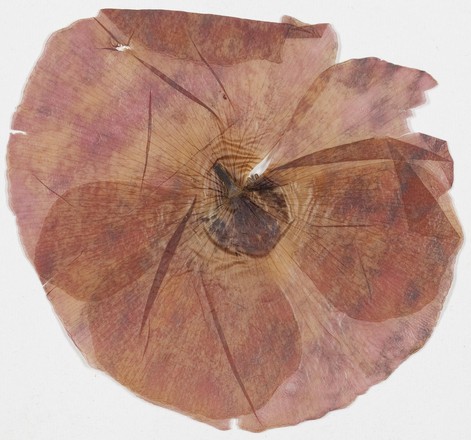Diary with pressed poppy, 21 September 1915 – 18 July 1918
Manuscript and
pressed poppy
Purchased from GTC McClintock, 1919
MLMSS 2783 Item
3
Fragile and faded, a lasting memorial
One of the most iconic symbols of the Great War is the red poppy. Scarlet corn poppies (Papaver rhoeas) grow naturally throughout Western Europe, particularly in fields where earth has been churned up. The land around the Western Front, ripped open from four years of devastating war, provided ideal conditions for poppies to grow across abandoned battlefields. These wild, deep red flowers came to symbolise the sacrifice of those who died in the War. Australian soldier, George McClintock kept a poppy pressed within the pages of his diary.
George Thomas McClintock
By Elise Edmonds, 2015
George Thomas McClintock enlisted to serve in the AIF at the age of 21
in September 1914. He was a boundary rider from Parramatta and left Australia
in December 1914 on board the troop transport, A38 Ulysses. He served in the Australian Army Medical Corps, attached
to the 13th Battalion, 4th Division. He later transferred to the 17th
Battalion, in November 1917. McClintock served at Gallipoli in 1915, Malta in
1916, France in June 1916 and Belgium in November 1917. He was wounded at
Gallipoli 26 August 1915 and again 8 September 1915. In early 1918 he
transferred to the infantry. He returned to Australia on the ship, Kasir-a-Hind, 24 September 1918.
In Flanders Fields
It was Canadian surgeon Lieutenant Colonel John McCrae who wrote about the poppy in the famous
World War I poem In Flanders Fields;
In Flanders fields the poppies blow
Between the crosses, row on row,
That mark our place; and in the sky
The larks, still bravely singing, fly
Scarce heard amid the guns below.
We are the Dead. Short days ago
We lived, felt dawn, saw sunset glow,
Loved and were loved, and now we lie
In Flanders fields.
Take up our quarrel with the foe:
To you from failing hands we throw
The torch; be yours to hold it high.
If ye break faith with us who die
We shall not sleep, though poppies grow
In Flanders fields.



 Back to list
Back to list